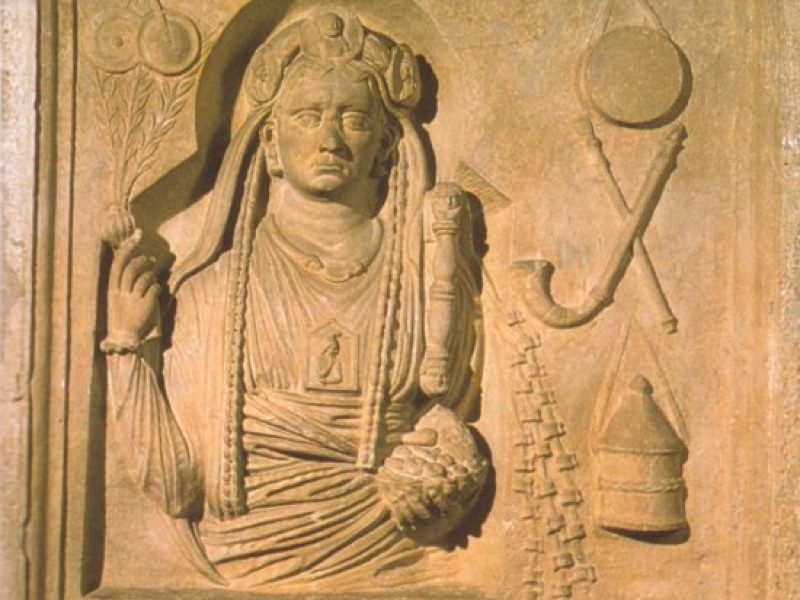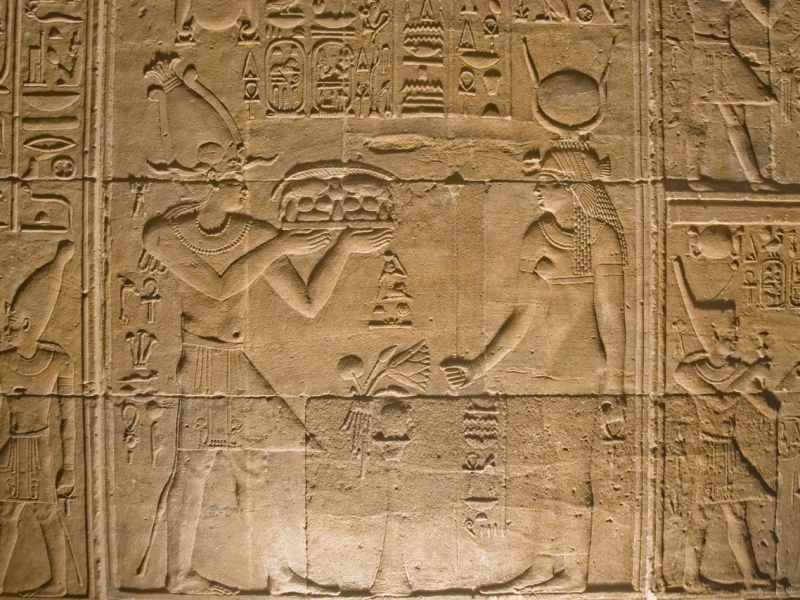Orphic Mysteries
The Orphic Mysteries were said to have been founded by the mythical singer Orpheus (Ὀρφεύς), though this cult was only known to exist as early as the 6th century BC. Many poems and songs were attributed to Orpheus, which his pupil Musaeus was said to have brought to Greece from Thrace.
The Orphic cult or mystery religion was named after its supposed founder, the mythical Thracian singer Orpheus, who was either the son of the god Apollo (Ἀπόλλων) or that of the Thracian king Oeagrus. His mother was the Muse Calliope. Orpheus was famously known for both his music and his singing. It had the power to enchant people and animals. It could even calm a fierce storm, as Diodorus Siculus says in his version of the Argonauts.
His marriage with Eurydice was short, and she died from snakebite. Orpheus braved the Underworld to bring his wife back from the dead. Though he managed to charm Hades and Persephone with his singing and music, he failed because he had broken the condition that Hades had set upon him.
Distraught of failing to restore his wife back to life, Orpheus retired to the Thracian mountains. Orpheus was still in mourning when a group of female Dionysiac followers, known as the Maenads, tore him to pieces.
There are several reasons why he died in the mountains, at the hand of the maenads. Whatever the reason, he was torn to pieces. The Muses gathered the pieces of his body and buried them at Mount Piera. His head, still singing his haunting song, was carried down the river Hebrus and drifted into the sea, until it reached the island of Lesbos, where it was buried.
I have already related the tale about Orpheus and Eurydice in the Tales of Lovers page, which you can read for more details.
Strange as this may seem, Orpheus was said to be the founder of a new religion, and the central god of this cult was Dionysus (Διόνυσος). Not only that, but according to the Orphics, Orpheus was said to be Dionysus' chief priest. So why would the maenads, the followers of Dionysus, murder Dionysus' own priest?
There are other Dionysiac cults in which the followers were involved in drunken revelry and sex orgies. The Orphic Mysteries were, however, different from the usual, wild Dionysiac cults.
Central to the Orphic belief was the Creation myth (Theogony), which began with the first god being born from a Cosmic Egg.
This god was named Protogonus (Πρωτογονυς, First-born), but was known more popularly as Phanes (Φανης, Light). Successive gods ruled the universe from Olympus after Protogonus/Phanes, including Uranus, Nyx, Cronus and Zeus, until Dionysus, the child of Semele. Dionysus was the last god to rule the entire universe from Olympus.
This Dionysus was actually the reincarnation of an earlier Dionysus (sometimes known as Zagreus, Ζαγρεύς), who was the son of Persephone. Zeus fathered a son by his own daughter, Persephone, but the evil Titans tore him to pieces and devoured the infant god (Dionysus-Zagreus).
One essential element found in this creation myth was that of the rebirth of the god, namely Dionysus. Dionysus (Bacchus) was reincarnated from Dionysus-Zagreus, son of Persephone. It was believed that Dionysus-Zagreus was also the reincarnation of Protogonus-Phanes.
So it seemed that Orpheus suffered the same fate of Dionysus-Zagreus, when the maenads tore the singer to pieces.
See the Orphic Creation.
According to the Argonautica, Apollonius of Rhodes wrote that Orpheus sang a different song from the Orphic myth about the Creation, particularly about the Cosmic Egg, Eurynome (Εὐρυνόμη) and Ophion (Ὀφίων). Apollonius didn't give much detail about the Creation (see Eurynome and Ophion). Apollonius' Creation was noticeably different from that of the Orphic Theogony.
When Zeus destroyed the Titans with his thunderbolts, mankind sprang into existence from the ashes of the Titans. Since the Titans had devoured all of Dionysus' body except the heart, mankind possessed both good and evil in his nature. So each man's soul possessed a dual nature. His evil nature came from the Titans, while his good side came from the god Dionysus.
The Orphic cult was heavily influenced by Eastern beliefs, particularly regarding the transmigration of the soul (reincarnation), and that of guilt and sins. The ultimate goal of the believers was that when a person died, he would be rewarded and live his afterlife in Elysium or the Elysian Fields.
Elysium is the Greek/Roman version of the Isles of Blessed or Heaven, where a person could eternally live in a paradise if he had led a blameless life while he was living in the flesh, in the physical world.
To achieve this afterlife, a believer had to live an austere and virtuous life that involved remaining celibate and abstaining from eating meat and drinking wine, which was the exact opposite from the normal Dionysiac cults. Only by living three virtuous lives could a person gain entry to Elysium, which would release them from continuous cycles of rebirth (reincarnations).
The other, most important requirement for achieving Elysium was becoming initiated into the Orphic mysteries.
To the Orphic followers, the physical body was a prisoner or tomb for the soul. A person who lived a wicked life would be punished in Tartarus or in hell for their sins. They believed that the physical body represented the titanic nature of a person, while the Dionysiac part was the soul. It was the titanic nature that prevented a person from reaching Elysium.
Before a person who had died could be reincarnated into another body, he had to undergo spiritual purification in the netherworld (Erebus). The whole purpose of the Orphic cult was to live an austere and virtuous life, ridding oneself of one's evil or Titanic nature through living three consecutive, blameless lives in order to gain final, eternal peace in the Elysian Fields. Elysium was like heaven to the Greeks. According to Orphic belief, Persephone was the final judge on whether a person could enter Elysium or not.
The Orphic cult was known to exist as early the 6th century BC, and it was influenced by some of the Eastern religions, as well as from some of the philosophy of that time, particularly that of Pythagoras (c. 580-500 BC), the founder of the Pythagorean school (Pythagoreanism). Pythagoras was both a philosopher and mathematician, born on the island of Samos, but he migrated to Croton, in southern Italy.
The teaching of the Orphic religion also heavily influenced other philosophical schools, such as Platonism and Neoplatonism. Plato made many references to Orphism in his writings. Some Neoplatonist authors have written extensively about Orphism. It seemed to also have influences upon Gnosticism, with the teaching about the dual nature of man, the entrapment of the soul in the physical body, and life after death.
Related Information
Sources
Orphic Hymns.
Related Articles
See Orphic Creation.
Orpheus, Eurydice, Dionysus (Zagreus), Liber (Bacchus), Protogonus (Phanes), Eros, Persephone, Proserpina, Semele, Zeus, Nyx.
By Jimmy Joe





